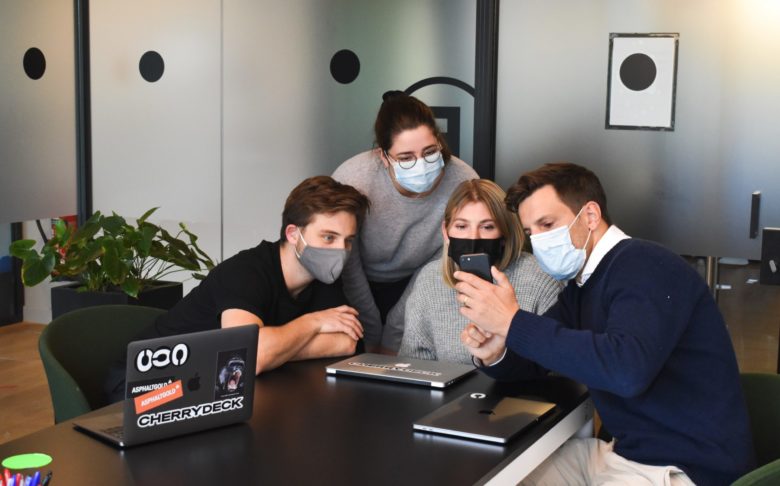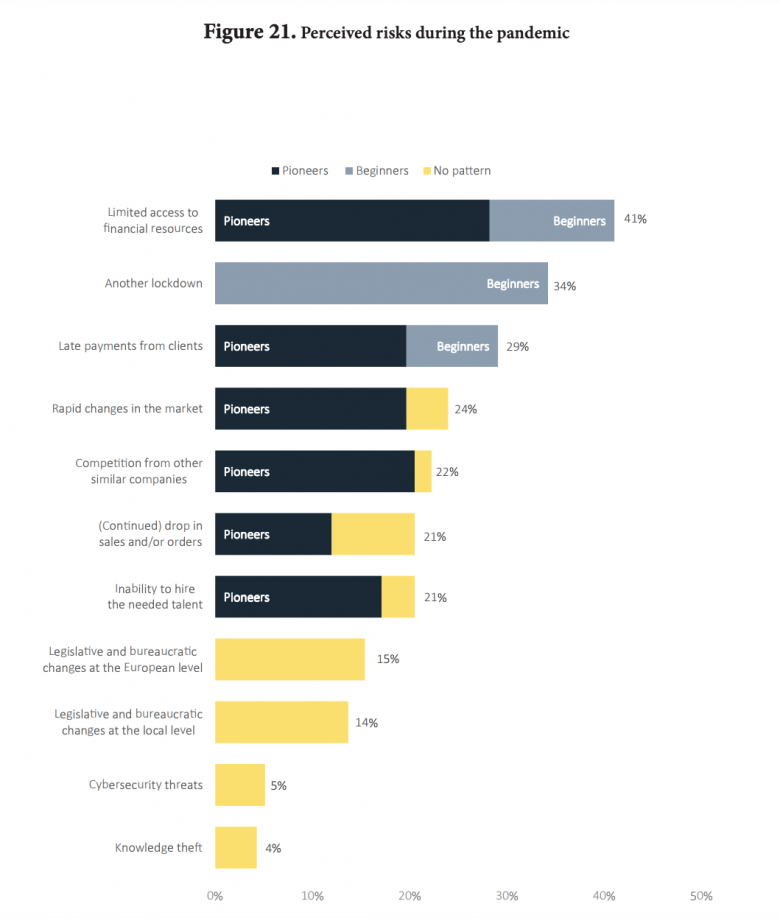COVID-19 affected 70% of Romanian tech start-ups, study finds

Nearly 70% of tech start-ups in Romania have experienced some level of impact because of COVID-19, according to “Impact of COVID19 on Technology Startups in Romania”, the first study on the issue, initiated by the Romanian Tech Startups Association (ROTSA) in partnership with over 130 players of the local startup ecosystem.
The report is based on research conducted between February and March 2021 on a sample of 117 tech startups in Romania.
In the process of making decisions on how to mitigate the impact of the COVID-19 pandemic, half of the surveyed startup founders (50%) consulted their entire team, 49% talked to their advisory board, mentors, and coaches, while 39% sought advice from other entrepreneurs. The way startups responded to the pandemic depended largely on their development and maturity level (number of years in the market, number of employees, and income). Startups responded by making changes in three key areas: employees, finance, and market positioning. While some downsized their operations as a whole, others did quite the opposite and actually chose to grow their teams and boost their investments. There were also those who balanced their lowered administrative costs with team expansion or increased marketing budgets in a bid to gain a bigger market share.

Romanian tech startups generate average income of EUR 150,000
The profile of a Romanian technology start-up is: locally registered organization, active on the market for less than four years, with less than four employees and a turnover of approximately EUR 150,000 per year.
The most thriving ecosystem of local technology start-ups is located in Bucharest, followed by Cluj, Timiș, and Bihor. Also, the most significant evolution of the start-up ecosystem in Romania occurred in 2017, when the number of newly established technological start-ups almost tripled compared to the previous year.
Automation, Fintech, and Marketing have biggest workforce, highest revenues
The startups with the highest number of employees are in Fintech (35.2%), Automation (35.2%), and Marketing (14.2%). The start-ups with the highest revenues are in the same categories: Automation (38.1%), Fintech (31.8%), and Marketing (12.1%).
The main challenge for technology start-ups is the need for funding to support operations and expansion. The main source of funding for technology start-ups is self-financing, while 36% of them have raised private funds (Business Angels 23%, VC 9%, Equity Crowdfunding 4%).
“The study shows the impact of the pandemic on technology start-ups, but it also identifies strategies, programs, and services designed to accelerate the development of the entrepreneurial sector in the technology field. With this study, we launch ROTSA Digital Hub, an initiative that supports technology, energy, sustainability, renewable energy start-ups through three types of actions: mapping, free promotion, mentoring and education “, states Cristiana Bogățeanu, Executive Director of ROTSA.





























